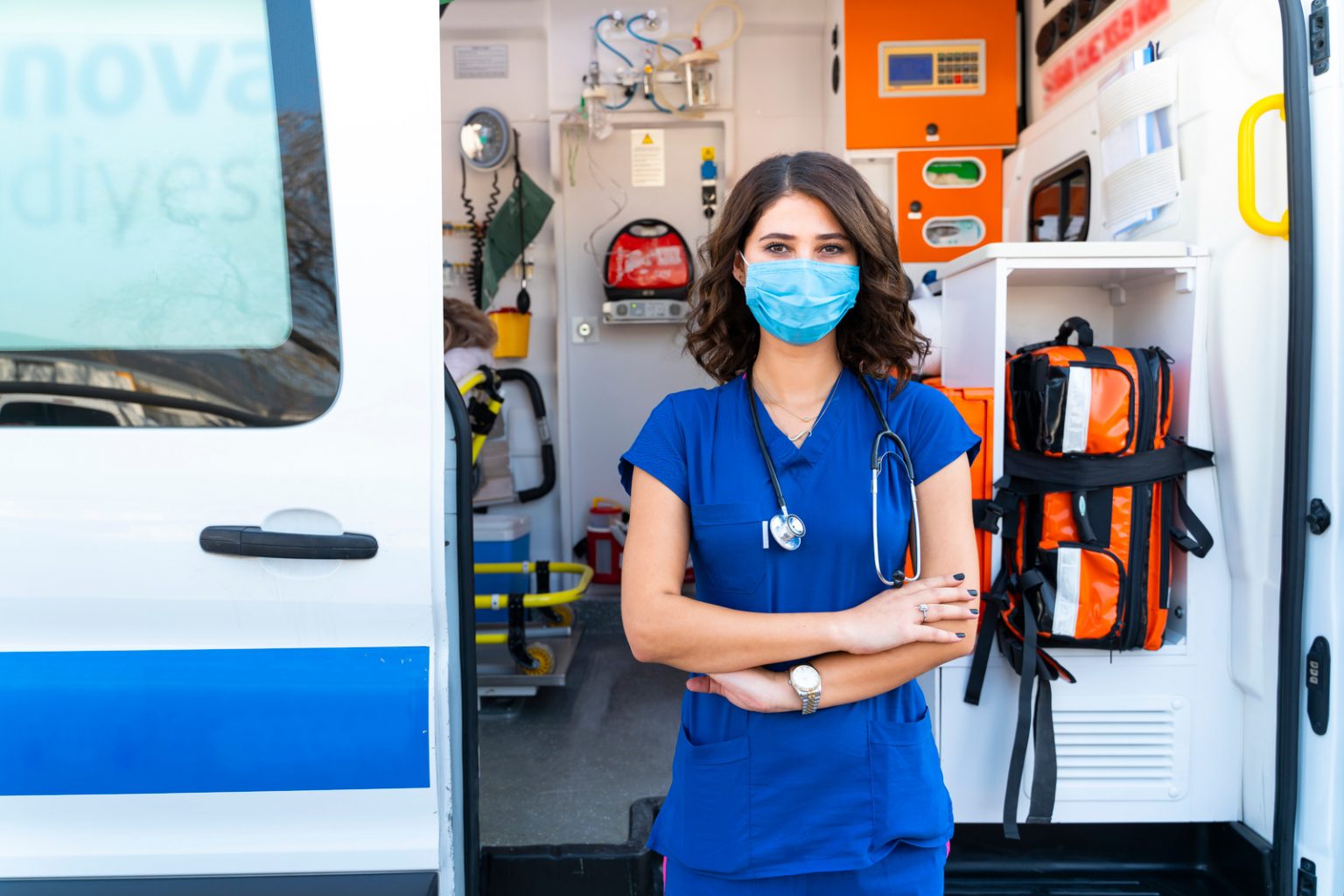It takes a lot to be an EMT. You’re exposed to tough conditions, dealing with emotionally and physically intense situations, and working through long shifts. But, it is also one of the most rewarding career paths out there!
Whether you’re exploring the possibility of an EMT role or you’ve been in the field for a while, there are a lot of things to keep in mind. To create this guide of things every EMT should know, we sought out the advice of industry experts and healthcare professionals for their wisdom and insights into the profession.
What is an EMT?
Before we get into the specifics, let’s start with some broad definitions. An emergency medical technician (EMT) is a first responder to 911 calls and emergency situations. EMTs are trained in an array of live-saving skills, from performing CPR to administering oxygen. There are a few prerequisites and requirements for every EMT, including becoming CPR certified, passing the NREMT exams, and keeping up with continuing education to reinforce your training.
So, are you ready to learn what exactly it takes to be a good EMT? Keep reading for some of our very best insider tips:
Be Ready For Anything
An EMT role is a lot of things, but it’s definitely not mundane—when you respond to a call, you never really know what you might face. Every day brings new situations and new challenges, and so traits of every successful EMT are flexibility and adaptability.
“EMTs need to adapt quickly to changing situations, and they need to accept a lifestyle that involves rapid shifts in emotions,” explains Alex Pollak, an EMT and the founder and CEO of ParaDocs Worldwide. “You never know what you might be walking into, and unfortunately, you never know what you might see.”
Work Independently
As an EMT, you’re part of a team with your coworkers, other first responders, and hospital staff. However, when you’re the one one the scene and working with a patient directly, it’s also important to be able to work independently. Jeff Byer, a firefighter and EMT with the Village of Waukesha Fire Department, shared his expertise on the value of working independently. He says:
“You need to be able to work without having someone check on you. For example, one of our protocols is to administer a blood sugar test to every patient who has fallen down, this way we can rule out that they fell due to low blood sugar. If you are getting on scene, it is crucial for the EMT to know that this is the plan and to just do it, rather than having someone tell you. A lot of times, you are entering a scene with just you and your partner. You have to be self-reliant in order to succeed.”
A solid foundation of training will help you feel confident and capable while on the clock. If you have tools and knowledge at your disposal, you’ll be ready to act quickly when the time comes. SureFire CPR continuing education classes are a great way to maintain your skills and equip yourself for independent work.
Your Quick Thinking Will Save Lives
When a patient is facing cardiac arrest, you don’t have a moment to spare––a delay of just seconds could be the difference between a full recovery and permanent damage. It’s vital that EMTs are able to make a rapid yet thoughtful assessment of each situation and act quickly. In this job, every second counts.
Ben Tanner, a physician assistant and entrepreneur, has worked with many EMTs throughout his career in healthcare. He says:
“EMT’s often need to take initiative and get things done quickly. Whether that’s locating a patient, providing treatment, transporting them, or giving a clear and prompt report when they arrived at the hospital. Doing these temps promptly and efficiently can literally be the difference between life and death.”
Act With Compassion
During your shifts as an EMT, you’ll more than likely see some things on the job that are difficult to process. To get through the day, you might need to detach yourself emotionally from the situation, but it’s still necessary to remember to keep a gentle bedside manner.
Meggan Larson, an author, entrepreneur, and AFT Certified Success Coach, has first-hand experience with EMTs from when her children needed to go to the hospital in an ambulance. Her story speaks to the importance of compassion:
“From my perspective, one of the most important things every EMT should know is that it took a lot for a parent to call 9-1-1. When you meet that panicked parent with compassion, assurance, and understanding, the parent can calm down and as a result, the child can as well. Kindness goes a long way and when someone’s child is in danger, kindness can be the hope that parent holds onto in the midst of overwhelming darkness,” says Larson.
If you’re compelled to work in healthcare, you’re probably a caring person by nature, so just keep in mind that you’re interacting with people who are scared and upset. Even small gestures of kindness can really have an impact on a patient and their loved ones. Brandon Accurso, a Critical Care Paramedic and EMS I/C at Medstar EMS and Mobile Healthcare, echoes Larson’s sentiments. With over 9 years of experience in the industry he has learned that EMTs “see patients and families on the worst day of their lives. We need to connect with them and show that we care and are there for them…something as simple as a blanket or a hand to hold can make a world of difference.”
Communication Skills Are Key
Technical skills like performing CPR or applying a compress to a wound are of course an essential part of being an EMT, but don’t forget “soft” skills like communication too. While responding to a call, an EMT needs to effectively communicate with patients, families, healthcare providers, other first responders, and even bystanders.
“Detailed information must be accurately gathered and then communicated during the “handoff” to the next provider, such as the ER nurse,” Accruso shared. “When communication fails, the patient could have a negative outcome.”
Communication is a two way street––effective listening is just as critical as speaking clearly. Accurso touched on the importance of listening as an EMT as well. He says that “sometimes patients aren’t sure how to express their conditions or needs, so we have to listen carefully and ask follow-up questions to figure out what they mean. Sometimes this is reading between the lines through verbal and non-verbal clues.”
Learn More EMT Skills With SureFire CPR
Are you ready to dive into the world of being an EMT? We’ve helped thousands of citizens, first responders, and healthcare professionals through our classes offered both online and on-site. Programs like our BLS Certification Classes and Training will give you the tools you need to be an amazing EMT. If you have any questions, feel free to reach out. We are happy to help! Contact us today through our online contact form or give us a call at (888) 277-3143.







